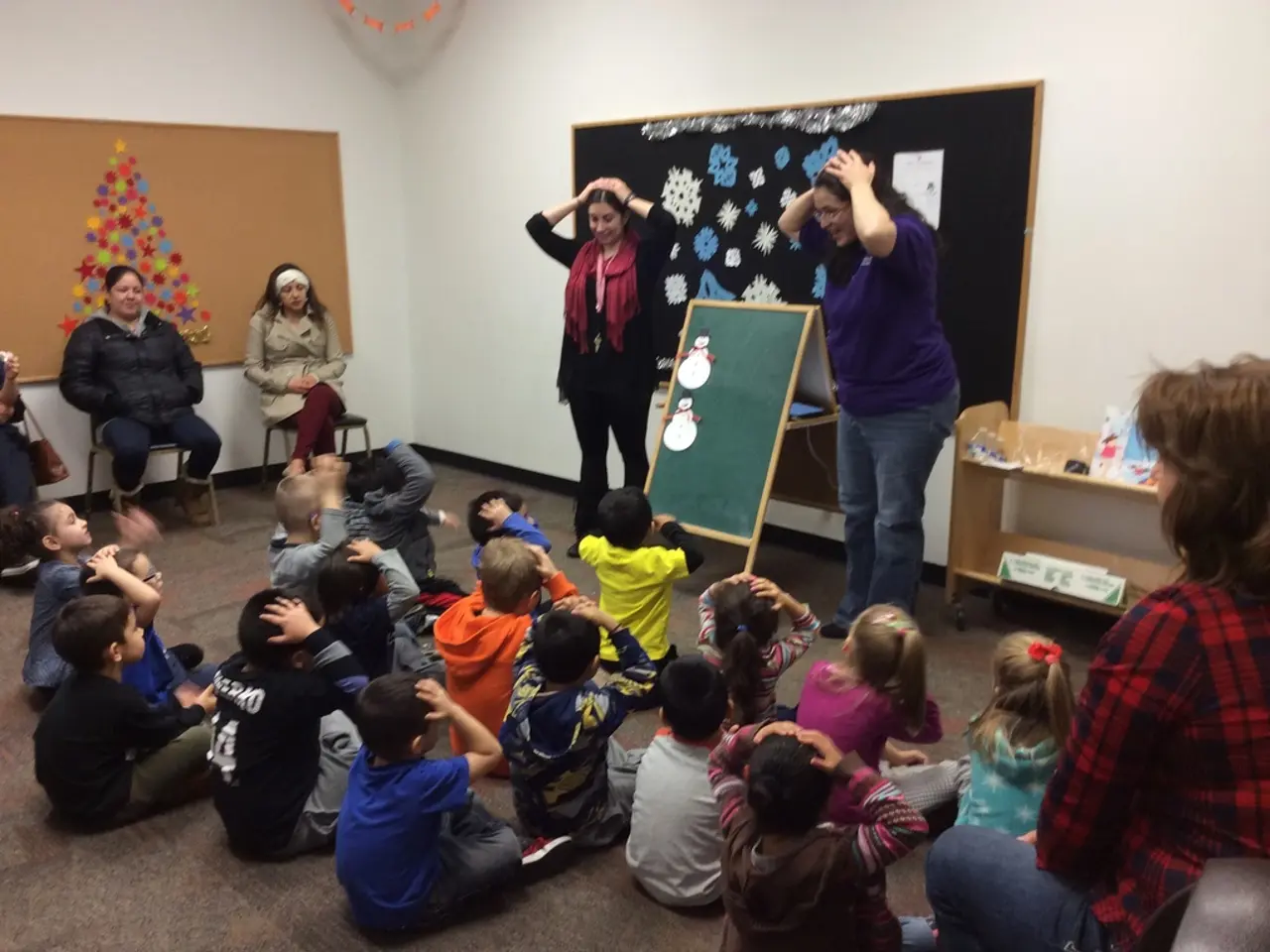Increasingly, educators are defying traditional roles
In the ever-evolving landscape of education, a focus on qualified educators is paramount, and this is no exception in Germany. Recent studies, such as the TAEPS ("Teachers in Adult Education—A Panel Study"), are shedding light on the qualifications, employment conditions, and skills of adult education teachers, reflecting the sector's growth as one of the largest educational fields in the country [1].
For traditional school teaching positions, the requirement for recognized teaching degrees, aligned with the subjects and age groups taught, and German language proficiency, remains essential [2][3]. Additionally, certain roles, particularly language teaching, may necessitate specific certificates like TESOL or TEFL, and legal and background checks are integral components of the certification and employment process [2].
Germany's dual education system, with its emphasis on vocational training and apprenticeships, plays a significant role in shaping teacher preparation pathways and professional development [4]. Career changes within teaching often involve meeting these certification standards and adapting to the shifting educational demands, such as transitioning into adult education or specialized technical and language instruction roles where certification requirements may differ [1][2][4].
Interestingly, statistics from the school year 2015/2016 reveal that approximately 29,900 teachers out of a total of 667,400 at general education schools did not have a recognized teaching certificate, accounting for 4.5% of the teaching force [2]. However, it's essential to note that these figures do not distinguish between lateral entrants and career changers.
Currently, the demand for qualified teachers remains high, with the number of new students slightly increasing after a decline in previous years. In the academic year 2023, the number of new students was 2.4% more than the previous year, and around 46,400 people began a teaching degree [5]. Moreover, in the exam year 2023, approximately 29,000 teaching students passed their final exams, marking a slight increase of 300 students compared to the previous year [5].
It's important to highlight that career changers, unlike lateral entrants, must complete a referral period before they can be hired as teachers. This requirement is designed to ensure that all educators meet the necessary standards and are well-prepared to join the teaching profession.
In the school year 2023/24, 16.6% of teachers at vocational schools did not have a recognized teaching certificate, a decrease from 20.6% in the school year 2015/16 [2]. This decrease suggests a positive trend towards increasing teacher certification across vocational schools.
For more information regarding this topic, please contact Ralf Schick at 0711 66601 185 or via email at r.schick@our website.
[1] Current trends in teacher certification and career changes in the German educational system highlight a growing demand for qualified educators across various sectors, including adult and further education. (Source: TAEPS) [2] Germany’s dual education system remains a hallmark of its educational landscape, with a significant emphasis on vocational training and apprenticeships, influencing teacher preparation pathways and professional development. (Source: Various) [3] The demand for qualified teachers remains high. (Source: Various) [4] The number of new students is lower than it was ten years ago. (Source: Various) [5] The number of new students in the first semester of a teaching degree has increased slightly after a decline in previous years, with around 46,400 people beginning a teaching degree in the academic year 2023. (Source: Various) [6] Ralf Schick's contact information: 0711 66601 185, r.schick@our website. (Source: Provided)
- Acknowledging the growth of adult education as one of the largest educational fields in Germany, it is crucial for career-development in this sector to prioritize education-and-self-development for adult education teachers, accessing resources like the TAEPS study for guidance.
- Despite the necessity of qualified teachers in the German educational system, career changers who wish to enter teaching must meet certification standards and complete a referral period to ensure career-development with the required knowledge and skills.




